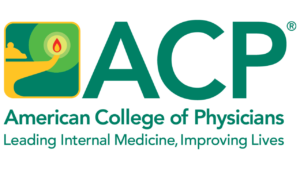The nickname bestowed on us residents by our internal medicine residency program director was “city savages.” There was a tremendous amount of pride amongst the residency programs in Boston back in the late 1980s, and it was no different in my program.
I recall exploring residencies in Boston. While interviewing at another highly regarded Boston Hospital, I asåked the chief resident many questions, including a quiet question about the residency program at Boston City Hospital (BCH). He responded, “Those residents are angels. I have no idea how they do what they do.” In that moment, I was sold, not on his hospital but on BCH.
We saw everything at BCH, as did most of us training in medicine at that time. BCH was special. Many, if not most, patients did not have insurance. Patients were from all walks of life and from all across the globe. Many did not speak English. Many suffered from the ravages of alcohol or substance use disorder, HIV infection, and hepatitis (including “non-A, non-B” hepatitis, later known as hepatitis C). We were deeply proud of the care we provided and worked hard to ensure that our patients, regardless of their personal habits, where they came from, or how they spent their time, received dignified, excellent health care. The faculty and the residents who had gone before us were role models. By the time we were third-year residents, we could take care of any challenge that came in the door (and our program director liked to remind us of this, hence the “city savages” moniker). We knew internal medicine inside and out. We were ready to go to any lengths to do all we could to provide optimal care to our deserving patients.
We ran all the codes in the hospital. When rotating through the emergency room, we gave instructions over the radio to EMTs in the field. When the hospital lab went down one night, the resident on call in the ICU monitored the treatment of his patient’s life-threatening hyperkalemia by following T-waves on the patient’s EKG. It was a challenging place to work, as anyone who did a residency in a safety net hospital or works in one today knows. The fact was, though, that all of us, whether we were residents, faculty, nurses, and everyone else, were deeply committed to serving our patients and their communities. We wanted to be there. We most definitely were “city savages,” extremely proud, and yes, it could be said we had a swagger.
It is this pride, instilled by the dedicated and devoted Boston City employees and my fellow residents, that guided me to the American College of Physicians, and like-minded physicians throughout my career. This ethos represents who internal medicine physicians are. We provide longitudinal care for complex adult patients with complicated problems, no matter our work setting. We know what our patients need, and we go to great lengths to ensure they get it. And if we don’t know what they need, we figure it out. We thrive in uncertainty and excel in challenging and dynamic environments. Internal medicine physicians see the big picture, and our deep training and knowledge give us a unique perspective to lead care teams and our organizations. And importantly, we take care of each other in the process.
Most physicians in practice today fall under the internal medicine umbrella, whether they are subspecialists, generalists, or hospitalists. Internal medicine has been and remains the largest training specialty, and internal medicine faculty in medical schools comprise the largest departmental group. A recent study shows that the majority of medical school deans who responded to a survey are internal medicine, family medicine, or pediatrics trained. Internal medicine physicians comprise the largest specialty on many hospital staffs, and many are hospital presidents and CEOs today. We are leaders across the health care spectrum.
Internal medicine has changed greatly since I was a resident. BCH no longer exists as a stand-alone entity, and hospitalists are now ubiquitous, as are electronic medical records. Attendings staff hospitals overnight, and residents are much more closely supervised, a significant improvement. The days of 36-hour in-house calls have vanished. Patients no longer fear the financial consequences of pre-existing conditions, thanks to the Affordable Care Act. Internal medicine physicians face great pressures to meet their contractual obligations and employers’ expectations and requirements. The burden of prior authorizations is real. Our health care system heaves and struggles. Multiple professional societies advocate for physician payment reform to ensure that primary care and internal medicine physicians will be there when we need them most.
The old “city savages” of Boston City Hospital still exist: they are us, internal medicine physicians.
We are leaders and the foundation of comprehensive health care. We serve as influential and valued medical educators and health system leaders across the country and the world. We solve problems. The foundational principles that inspired me as a BCH resident continue to inspire medical students and residents today, which bodes well for our future. And for that, I am grateful.
Janet A. Jokela, MD, MPH, ACP’s Treasurer 2022-2025, served as the Regional Dean of the University of Illinois College of Medicine-Urbana, and currently serves as Professor and Senior Associate Dean of Engagement at the Carle Illinois College of Medicine, Urbana, IL.
The American College of Physicians is the largest medical specialty organization in the United States, boasting members in over 145 countries worldwide. ACP’s membership encompasses 161,000 internal medicine physicians, related subspecialists, and medical students. Internal medicine physicians are specialists who utilize scientific knowledge and clinical expertise for diagnosing, treating, and providing compassionate care to adults, spanning from those in good health to individuals with complex illnesses. Stay connected with ACP on X @ACPIMPhysicians, Facebook, LinkedIn, and Instagram @acpimphysicians.

